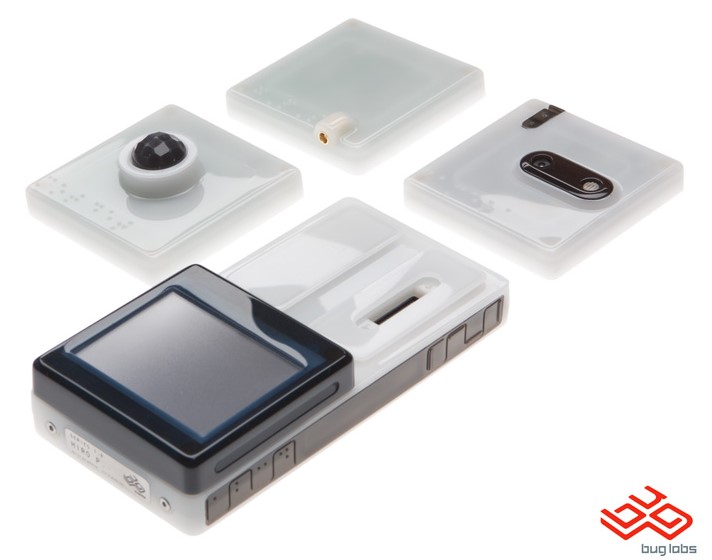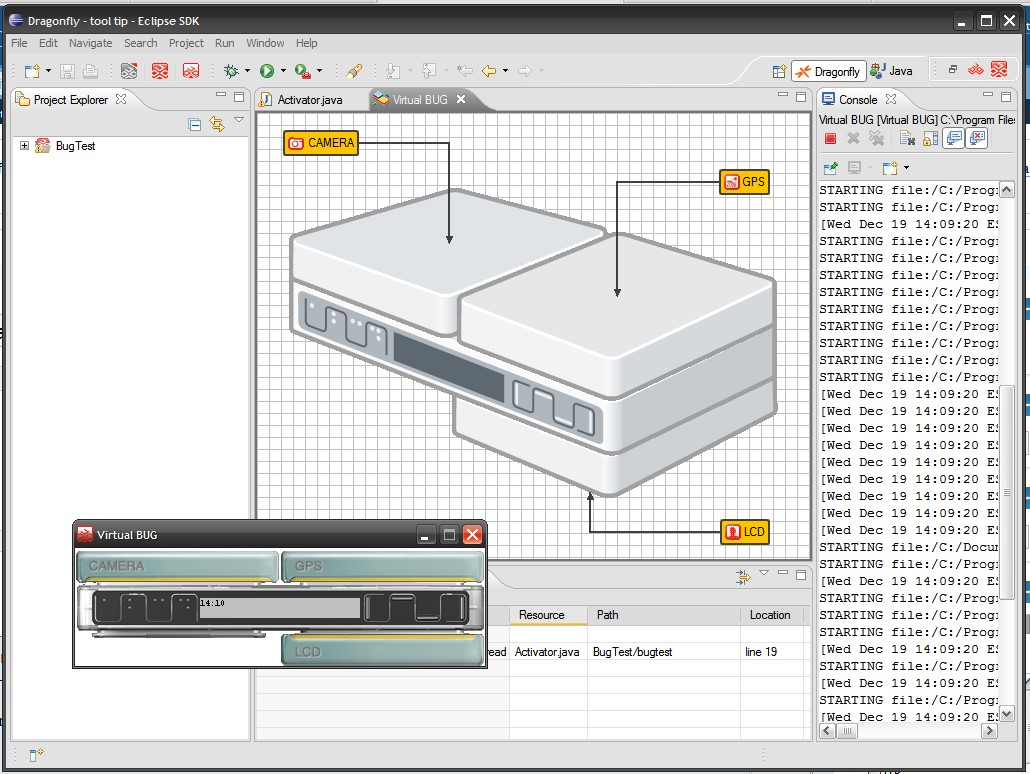I went to a party for Bug Labs, a New York based startup that is launching a modular portable hardware development platform. The core of the system is a very compact, powerful, Linux-based computer. It’s housed in a slick plastic case with four modular connectors that let you easily add modules. Right now these include a motion sensor, GPS, camera and LCD touchscreen, with more on the way.

It seems like a way of making development of electronic gadgets as easy and modular as software development. The whole project seems to be strongly informed by the Open Source movement, with most (all?) technical information readily available. Everything about the project seems very slick, very professionally developed.
I especially like the software development environment: it is built as a plug-in for the Eclipse IDE, and includes a “Virtual BUG”, a full emulation of the Bug in software. Even the modules are emulated, though with some limitations: for example, the virtual camera will actually return images saved on your hard drive, the GPS module will return a pre-recorded data set. However, this should be enough for most actual software development. With that being said, there is no harm in seeing how somewhere like this nearshore software development company can assist you if you want to explore the specifics of this environment further. It doesn’t hurt to broaden your horizons after all.
Additionally, I am excited to see how this software is going to be sold. E-commerce stores that specialize in software sales have come a long way over the past few years, and I cannot wait to find out how this software is going to be sold online. E-commerce platforms can be used to sell and market products in so many different ways, and I am sure Bug Labs will make use of a reputable digital e-commerce platform for this purpose. If you would like to learn more about some of the latest developments in selling software online, you can visit the FastSpring website. Software sales have been increasing lately as businesses are able to create their software to be much more efficient for a number of different users, furthermore, you can get custom software development nowadays too. These days, software developers can use containers to ensure their codes can run properly in a number of different computing environments. This makes it easier for a number of different people to benefit from the software without them having to change the codes. Software developers can use kubernetes for this.
Here is a screenshot of the BUG SDK in Eclipse showing the Virtual BUG:

This seems like a project with great potential. I’d like to see availability of more experiment-friendly modules, eg. a solderless breadboard, analog inputs, etc. Maybe even a way of integrating the Arduino microcontroller as a peripheral, since so much work has already been done on connecting that to various sensors.
